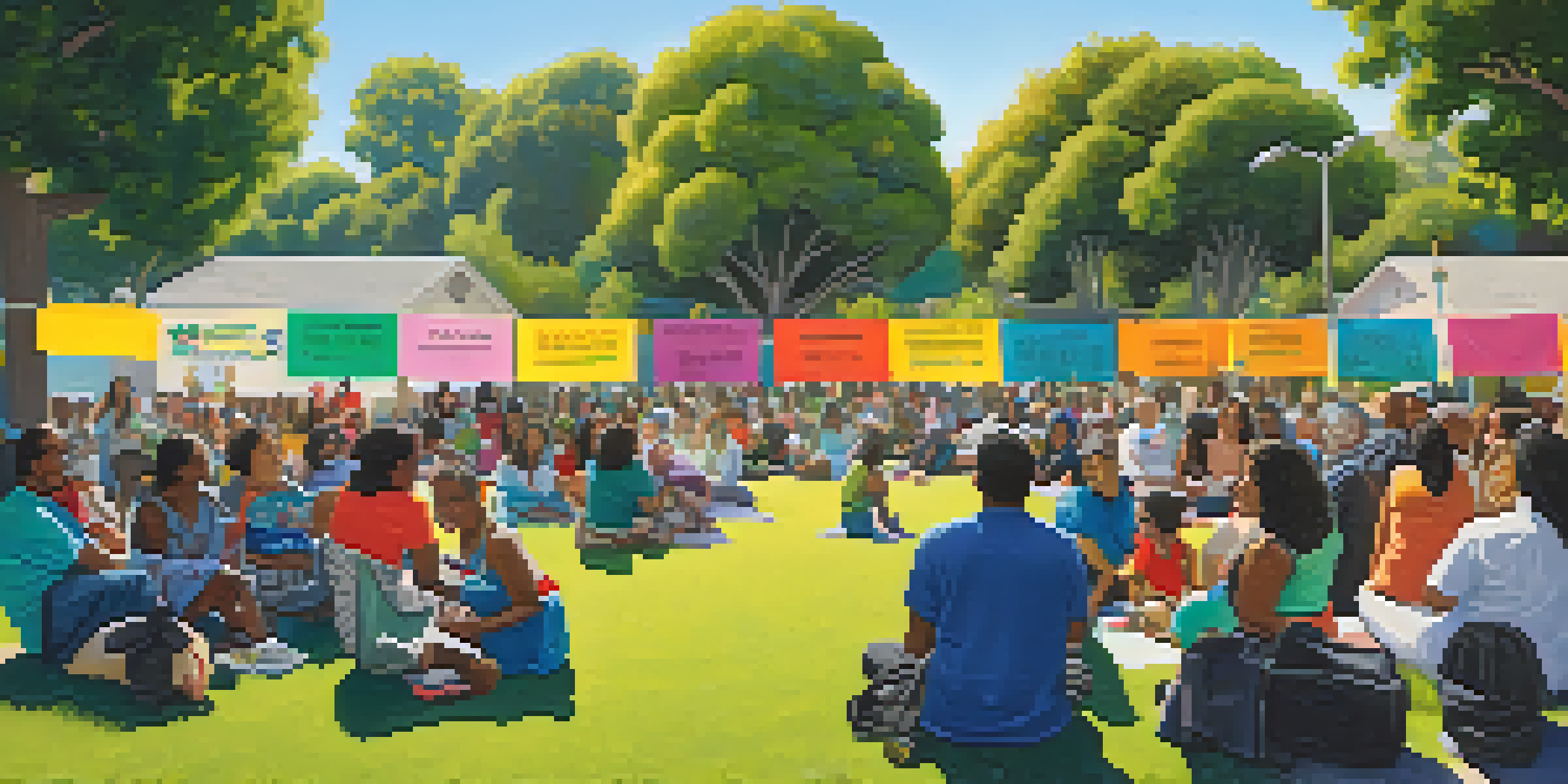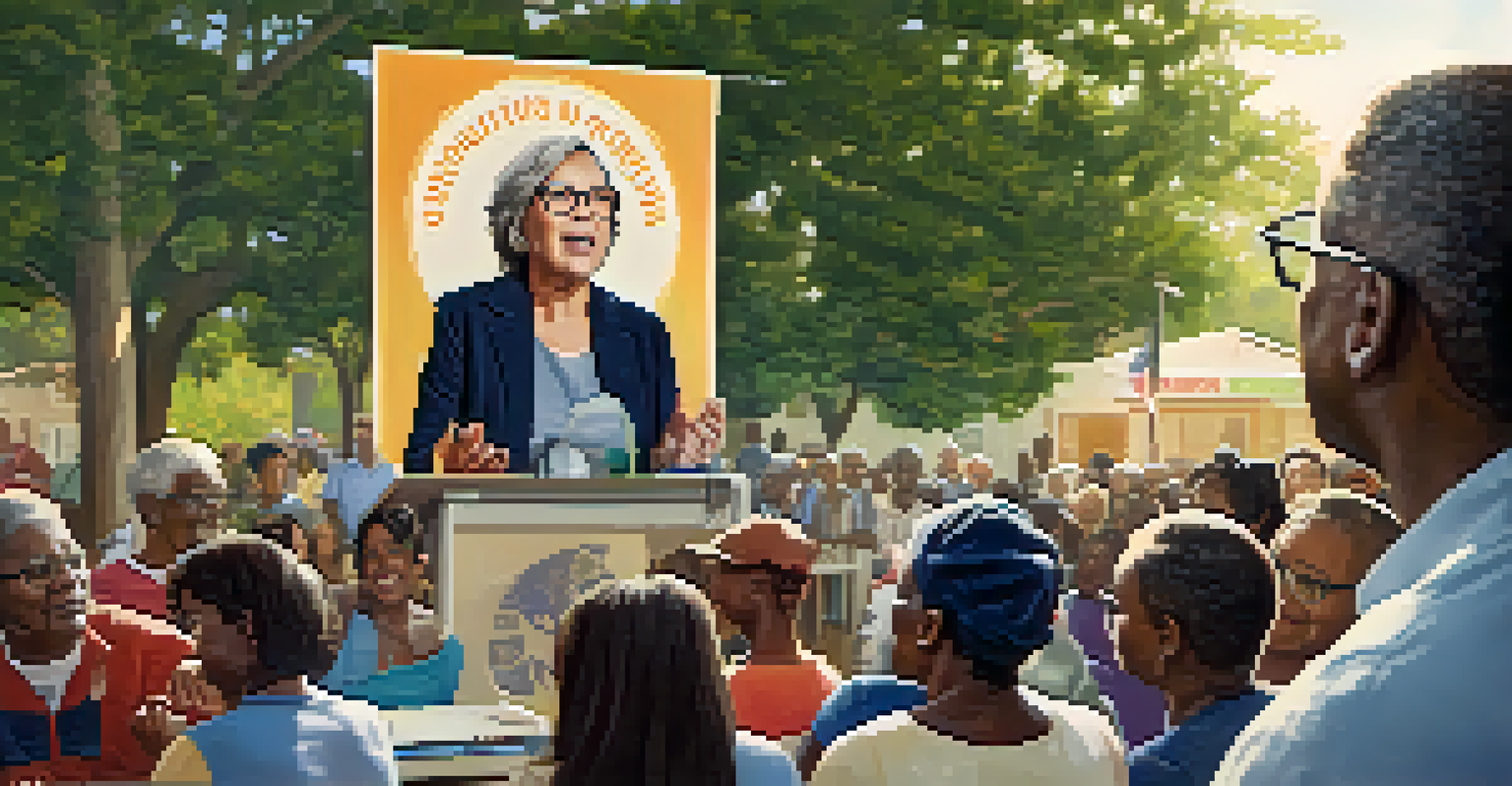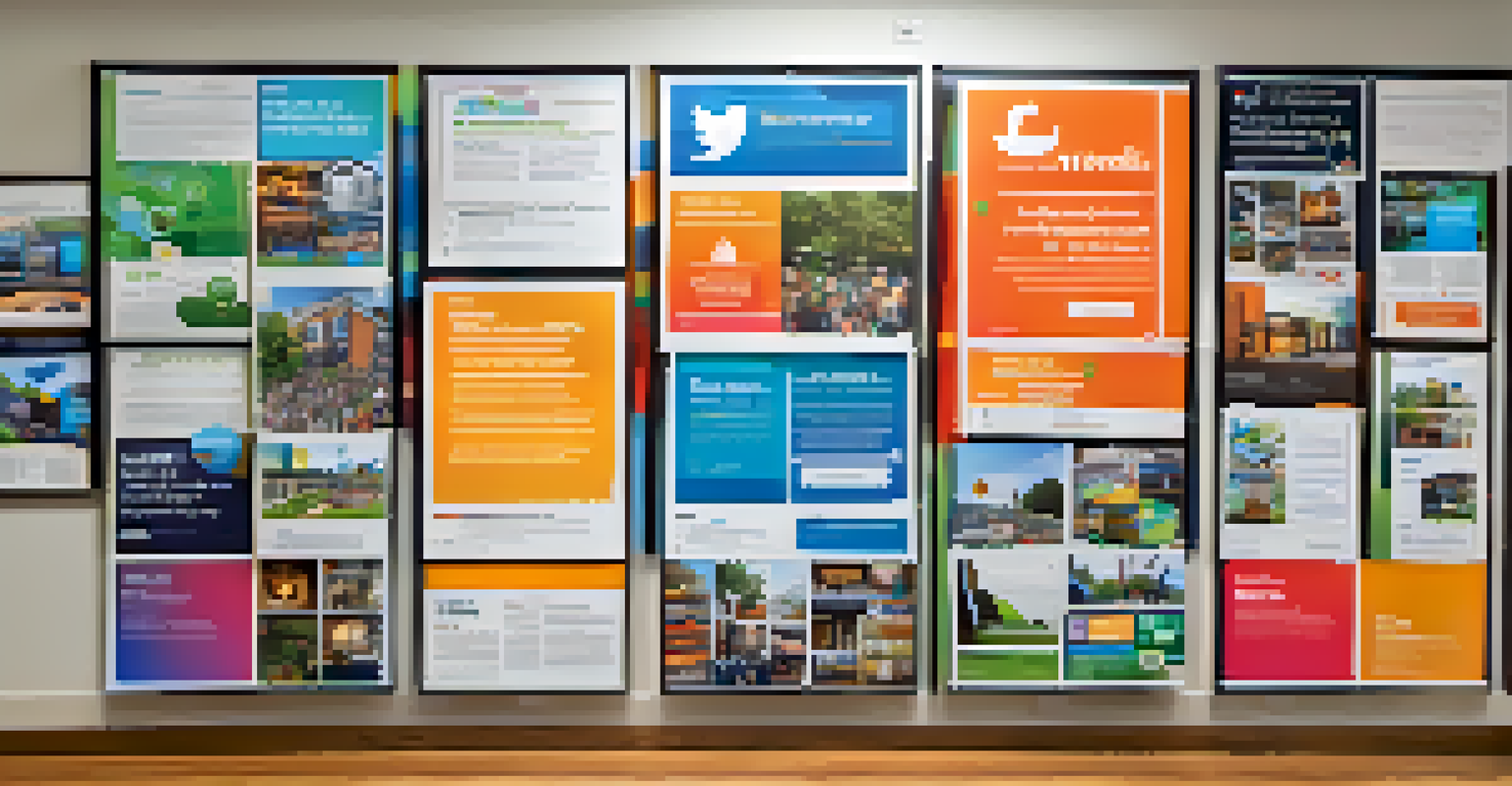The Power of Neighborhood Coalitions in Los Angeles Activism

Understanding Neighborhood Coalitions in Los Angeles
Neighborhood coalitions are groups formed by residents to address local issues collaboratively. In Los Angeles, these coalitions are essential for fostering community engagement and addressing challenges that affect everyday life. They bring together diverse voices and perspectives, creating a platform for residents to share their concerns and aspirations.
Alone we can do so little; together we can do so much.
These coalitions often focus on specific issues, such as housing, environmental justice, or public safety. By pooling resources and knowledge, members can create a stronger front when advocating for change. This collective action not only amplifies their voices but also fosters a sense of belonging and community pride.
Moreover, these coalitions often act as a bridge between residents and local government, ensuring that the community's needs are heard. By facilitating dialogue, they help build trust and transparency, which are crucial for effective activism. The power of these coalitions lies in their ability to unite communities around shared goals.
The Role of Local Leaders in Coalition Success
Local leaders play a pivotal role in the formation and success of neighborhood coalitions. These individuals often possess a deep understanding of the community's needs and challenges, making them ideal catalysts for change. Their passion and dedication inspire others to get involved, fostering a culture of activism.

Effective coalition leaders are skilled at mobilizing resources and individuals. They often organize meetings, workshops, and events that bring community members together to brainstorm solutions. By empowering others, they help create a sense of ownership among residents, encouraging them to take an active role in their community.
Coalitions Foster Community Engagement
Neighborhood coalitions in Los Angeles unite residents to collaboratively address local issues and strengthen community ties.
Additionally, these leaders often serve as liaisons with local government and organizations, advocating for the coalition's interests. Their ability to navigate the complexities of bureaucracy can make a significant difference in achieving tangible results. In essence, strong local leadership is the backbone of successful neighborhood coalitions.
Building Coalitions Through Shared Interests
One of the most effective ways to build a neighborhood coalition is through shared interests. By focusing on common goals, residents can rally together, regardless of their backgrounds. Whether it's a desire for safer streets, cleaner parks, or affordable housing, these shared interests provide a solid foundation for collaboration.
The greatness of a community is most accurately measured by the compassionate actions of its members.
Identifying these common goals often begins with community meetings, where residents can voice their concerns and prioritize issues. This collective brainstorming can lead to a clearer understanding of the community's needs, allowing for targeted actions. When people feel that their voices matter, they are more likely to participate actively.
Furthermore, shared interests foster a sense of camaraderie among residents. As they work together towards common objectives, relationships are built, and trust is established. This unity not only enhances the coalition's effectiveness but also strengthens the fabric of the community as a whole.
Successful Examples of Neighborhood Coalitions
Los Angeles is home to numerous successful neighborhood coalitions that have made significant impacts. For instance, the South Central Farmers Coalition formed in response to the need for community gardens and local food access. Their efforts not only promoted sustainable agriculture but also brought awareness to food deserts in the area.
Another notable example is the Echo Park Neighborhood Council, which has effectively addressed issues related to homelessness and public safety. By collaborating with local government and service providers, they have implemented programs that support vulnerable populations while fostering a safer environment for all residents.
Local Leaders Drive Coalition Success
Effective local leaders inspire community involvement and navigate government processes to advocate for coalition goals.
These success stories illustrate the potential of neighborhood coalitions to drive meaningful change. By harnessing the collective power of residents, they have tackled complex issues head-on, proving that grassroots activism can lead to transformative outcomes in communities.
Challenges Faced by Neighborhood Coalitions
Despite their successes, neighborhood coalitions in Los Angeles face several challenges. One major hurdle is the diverse needs and opinions within communities, which can lead to conflicts and disagreements. Striking a balance between differing perspectives is crucial for maintaining unity and focus.
Additionally, coalitions often struggle with limited resources, including funding and manpower. Many rely on volunteer efforts, which can be inconsistent and may hinder long-term projects. Finding sustainable funding sources and engaging committed volunteers is vital for their survival and effectiveness.
Finally, the complexity of local government processes can be daunting for many coalitions. Navigating bureaucratic systems requires knowledge and experience, which not all community members possess. Building partnerships with experienced organizations can help coalitions overcome these obstacles and enhance their advocacy efforts.
The Impact of Social Media on Coalitions
In today's digital age, social media plays a crucial role in the effectiveness of neighborhood coalitions. Platforms like Facebook, Twitter, and Instagram allow coalitions to reach a wider audience and mobilize supporters quickly. This online presence can significantly enhance community engagement and awareness of local issues.
Through social media, coalitions can share updates, organize events, and spread the word about campaigns. This immediacy fosters a sense of urgency and encourages more residents to participate in activism. Additionally, social media provides a space for dialogue, allowing members to share ideas and feedback in real-time.
Social Media Enhances Coalition Impact
Social media platforms enable neighborhood coalitions to engage a wider audience, mobilize support, and foster real-time dialogue.
However, it's essential for coalitions to navigate social media responsibly. Misinformation can spread rapidly, and maintaining a positive, constructive online presence is vital. By using social media thoughtfully, coalitions can amplify their messages and foster community solidarity.
The Future of Neighborhood Coalitions in LA
Looking ahead, the future of neighborhood coalitions in Los Angeles appears promising. As communities continue to face complex challenges, the need for collective action is more critical than ever. By fostering collaboration and unity among residents, these coalitions can drive impactful change.
Emerging trends, such as increased focus on climate justice and affordable housing, provide new opportunities for coalitions to engage and mobilize. By aligning with broader movements, they can amplify their impact and connect with like-minded organizations. This intersectionality can create a more robust network of support for local initiatives.

Ultimately, the resilience and adaptability of neighborhood coalitions will determine their future success. By embracing innovation, fostering inclusivity, and prioritizing community needs, these coalitions can continue to be a driving force in Los Angeles activism.